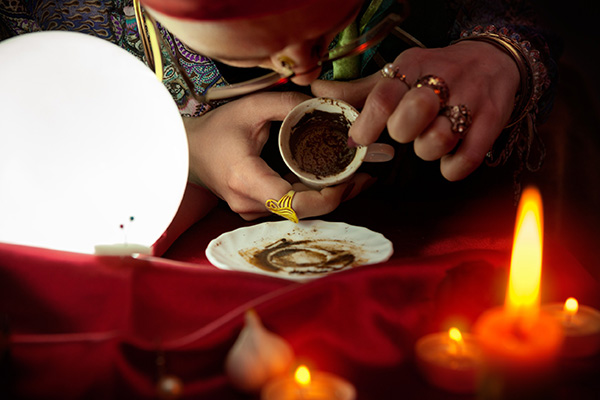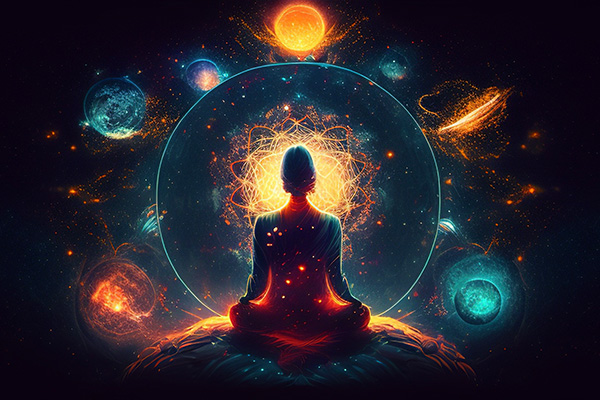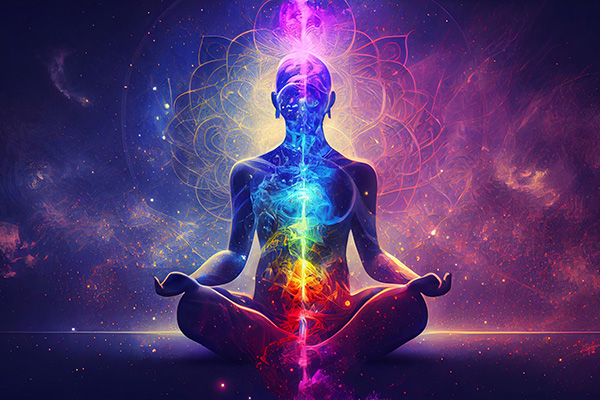food
The Ancient Art Of Facial Reading
 Physiognomy is an ancient belief system that the face reveals the hidden truths of the mind, body, and spirit. In many cultures, the face is seen as a reflection of the soul or inner self.
Physiognomy is an ancient belief system that the face reveals the hidden truths of the mind, body, and spirit. In many cultures, the face is seen as a reflection of the soul or inner self.
This belief that a person’s physical characteristics, such as the shape of their face, eyes, or nose, can reveal something about their inner nature has roots in various ancient cultures and has been practiced for thousands of years. In some esoteric traditions, facial characteristics are believed to also reveal past life influences and karmic imprints.
The face is more than just a reflection of our emotions; it is a map of our physical health, life experiences, and even our spiritual state. By observing our facial features and learning to interpret their subtle messages, we can gain valuable insights into our health and well-being.
One of the earliest and most detailed systems of face reading comes from Traditional Chinese Medicine (TCM). Chinese face reading, or Mian Xiang, dates back more than 3,000 years. Practitioners view the human face as a map of a person’s life, health, and destiny. They divide the face into different areas, each corresponding to different internal organs and emotional states. Facial analysis is used to diagnose imbalances in the body and mind.
Physiognomy was also practiced in ancient Greece. The philosopher Aristotle (384-322 BC) wrote about it, arguing that certain facial features could indicate personality traits and that there was a connection between a person’s appearance and their character. Greek scholars believed that external features, such as facial structure, could provide insight into a person’s moral and psychological makeup.
Practices For Developing Your Psychic Awareness
 Are you curious about increasing your intuitive awareness or developing your innate psychic abilities? Great! But how do you get started? It can seem like a daunting task, but it’s actually easier than you might think. But it does take some dedication.
Are you curious about increasing your intuitive awareness or developing your innate psychic abilities? Great! But how do you get started? It can seem like a daunting task, but it’s actually easier than you might think. But it does take some dedication.
Like any other talent, psychic ability can be practiced and improved with dedication and commitment. While some of us may have a stronger natural inclination toward psychic perception, everyone has the ability to improve their intuitive abilities through conscious effort, dedication, and practice.
Just as musicians hone their craft through consistent practice and athletes hone their skills through training, developing psychic talents requires a similarly disciplined approach. Regular practice will not only sharpen your existing skills, but can also unlock hidden potential you never knew you possessed.
By engaging in psychic development exercises, complemented by appropriate spiritual practices, anyone can sharpen their intuition and psychic awareness and become more attuned to subtle energies and impressions. However, it’s important to approach this journey with an open mind and a willingness to explore the depths of your consciousness.
Cultivating psychic abilities also requires patience and self-discovery. As you embark on this path, you may discover unique strengths and intuitive abilities that are waiting to be developed. With perseverance and a positive attitude, you can embark on a transformative journey to expand your psychic awareness and harness your innate potential.
Always Feel Free To Own Your True Feelings
 Has anyone ever told you that you are too happy? Or has anyone ever told you that you smile too much? My guess is probably never.
Has anyone ever told you that you are too happy? Or has anyone ever told you that you smile too much? My guess is probably never.
So, why is it that whenever we experience negative emotions, be it grief, despair, or depression, we are often told that there is a time limit to such feelings and that we need to get over it. In today’s society, it is essentially also taboo to express feelings of loneliness, sadness, fear, or simply being unhappy.
My brother died at the tender age of 12 and left such a void in our lives that my entire family grieved his loss for decades. Fortunately, we were raised to accept this as a perfectly normal and natural process for us. We all understood that we would work through our feelings of grief and loss in our own way and at our own pace. We did not grieve according to a schedule or set of societal rules.
I find that a useful way to think about feelings and how to process them is to think of our emotions as being processed by our heart and mind like food is processed by our body. Just like food, we need to break down, digest, and assimilate the lessons and insights in our emotions to serve as growth “nutrients” for the soul.
The Mystical Tradition Of Reading Coffee Grounds
 Traditional Turkish coffee is unique in its preparation. Prepared without the addition of milk, cream, and other additives, it focuses on the pure, robust flavors of the coffee.
Traditional Turkish coffee is unique in its preparation. Prepared without the addition of milk, cream, and other additives, it focuses on the pure, robust flavors of the coffee.
The art of brewing Turkish coffee is a meticulous process using a special coffee pot called a cezve or ibrik, which produces coffee with a strong flavor and thick, frothy texture. The grounds remain in the cup when it is served, contributing to the distinctive bitter taste that is a hallmark of this revered beverage.
In addition to its strong taste and aroma, Turkish coffee has a mystical appeal and a long history as a divination tool. The use of Turkish coffee grounds for divination, known as tasseography or kafemandeia, is a traditional practice in many cultures, including Turkish, Arabic and Greek.
In other cultures, tasseography is mostly practiced with tea leaves or wine sediments, but in Istanbul, coffee grounds became the preferred medium for this mystical art.
Steeped in history, the practice can be traced back to the Ottoman Empire, when coffee divination became popular in the 16th century in the harem of Sultan Suleiman the Magnificent, located in the Topkapi Palace in Istanbul, Turkey. This divination ritual was originally a way for the women of the harem to share news, gossip, and insights. At the time, women were banned from public coffeehouses, so fortunetellers, commonly known as “falci,” were allowed into the harem to read for the sultan’s wives. The term “fal” means “omen” or “fortune.”
The Anchoring Vitality Of The Root Chakra
 The chakras play a pivotal role in our energetic well-being. These energy centers, rooted in ancient Eastern philosophies, govern various aspects of our physical, emotional, and spiritual functioning and health.
The chakras play a pivotal role in our energetic well-being. These energy centers, rooted in ancient Eastern philosophies, govern various aspects of our physical, emotional, and spiritual functioning and health.
At the very base of this intricate energy system lies the root chakra, an energetic foundation that holds the key to our sense of security, stability, and connection to the world around us.
The root chakra, also known as the base chakra or muladhara in Sanskrit, is the first of the seven main chakras at the base of the spine. Its significance cannot be overstated, as it is the energetic anchor for the entire chakra system. This energy center is associated with red, symbolizing vitality, strength, and the life force that flows through us.
At its core, the root chakra is linked to our most primal instincts and survival needs. Its activation is crucial for establishing a solid foundation for a balanced and fulfilling life. When the root chakra is in harmony, it fosters a sense of security, grounding, and a deep connection to the physical world.
One of the primary functions of the root chakra is to address our basic survival needs, including food, shelter, and a sense of safety. When this chakra is balanced, we feel secure in our environment, enabling us to navigate life with confidence and stability. On the contrary, an imbalanced root chakra may manifest as fear, anxiety, or a constant sense of insecurity.
Chakra Balancing Is An Essential Self-Care Practice
 I recently attended a very informative talk given by a couple who are both energy healers. The husband is also a respected medium in our area. The topic was the chakra system and how to use it in an energy healing practice.
I recently attended a very informative talk given by a couple who are both energy healers. The husband is also a respected medium in our area. The topic was the chakra system and how to use it in an energy healing practice.
As a psychic practitioner, I already know a lot about the chakra system, but I am always open to other people’s perspectives and possibly even learning something new. I think it is important in any profession to keep an open mind and to have the desire to learn as much as possible. You are never too old, too wise, or too experienced to gain new insights!
So, I was pleasantly surprised that this talk turned out to be a wonderfully informative experience. In particular, the session reminded me of the importance of keeping one’s chakra wheels ‘in tune’, especially if one is in the business of healing or doing readings.
Clearing and balancing the chakras is vital because when a chakra is deprived of harmonious, free-flowing energy, it becomes unbalanced or even blocked, causing dysfunction in the organs and other mind-body functions associated with that chakra, as well as dysfunction throughout the rest of the entire chakra system.
